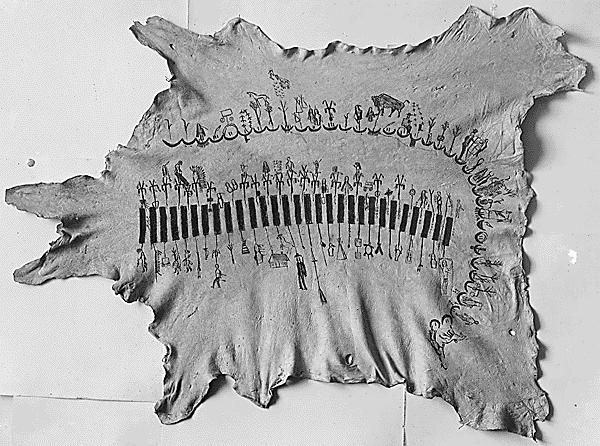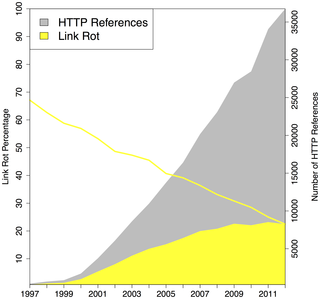English Corner
KlausGraf - am Freitag, 16. Januar 2015, 21:06 - Rubrik: English Corner
noch kein Kommentar - Kommentar verfassen
http://historicalthesaurus.arts.gla.ac.uk/
Via
http://researchbuzz.me/2015/01/16/words-oklahoma-arrl-more-fat-friday-morning-buzz-january-16th-2015/
Via
http://researchbuzz.me/2015/01/16/words-oklahoma-arrl-more-fat-friday-morning-buzz-january-16th-2015/
KlausGraf - am Freitag, 16. Januar 2015, 18:15 - Rubrik: English Corner
noch kein Kommentar - Kommentar verfassen
KlausGraf - am Freitag, 16. Januar 2015, 17:56 - Rubrik: English Corner
noch kein Kommentar - Kommentar verfassen
KlausGraf - am Mittwoch, 14. Januar 2015, 18:47 - Rubrik: English Corner
noch kein Kommentar - Kommentar verfassen
A Sampling of Calendars at the DPLA:
http://bookpatrol.net/happy-new-calendar-a-sampling-of-calendars-at-the-dpla/

http://bookpatrol.net/happy-new-calendar-a-sampling-of-calendars-at-the-dpla/

KlausGraf - am Montag, 12. Januar 2015, 13:27 - Rubrik: English Corner
noch kein Kommentar - Kommentar verfassen
Bastian H (2014) A Stronger Post-Publication Culture Is Needed for Better Science. PLoS Med 11(12): e1001772. http://dx.doi.org/10.1371/journal.pmed.1001772
"These days the system does not keep up well with the speed of activity and the volume of research from a vast community. Articles are, by and large, too uncorrectable and unconnected [5], and much significant intellectual effort is not captured at all. Substantive discussions in journal clubs, in email lists, in social media, and at conferences are not distilled into a concise, permanent, accessible record. Most of the unaddressed content of pre-publication peer review is also lost.
Post-publication evaluation is highly fragmented."
"These days the system does not keep up well with the speed of activity and the volume of research from a vast community. Articles are, by and large, too uncorrectable and unconnected [5], and much significant intellectual effort is not captured at all. Substantive discussions in journal clubs, in email lists, in social media, and at conferences are not distilled into a concise, permanent, accessible record. Most of the unaddressed content of pre-publication peer review is also lost.
Post-publication evaluation is highly fragmented."
KlausGraf - am Samstag, 3. Januar 2015, 02:29 - Rubrik: English Corner
noch kein Kommentar - Kommentar verfassen
http://dx.doi.org/10.1371/journal.pone.0115253
Abstract
"The emergence of the web has fundamentally affected most aspects of information communication, including scholarly communication. The immediacy that characterizes publishing information to the web, as well as accessing it, allows for a dramatic increase in the speed of dissemination of scholarly knowledge. But, the transition from a paper-based to a web-based scholarly communication system also poses challenges. In this paper, we focus on reference rot, the combination of link rot and content drift to which references to web resources included in Science, Technology, and Medicine (STM) articles are subject. We investigate the extent to which reference rot impacts the ability to revisit the web context that surrounds STM articles some time after their publication. We do so on the basis of a vast collection of articles from three corpora that span publication years 1997 to 2012. For over one million references to web resources extracted from over 3.5 million articles, we determine whether the HTTP URI is still responsive on the live web and whether web archives contain an archived snapshot representative of the state the referenced resource had at the time it was referenced. We observe that the fraction of articles containing references to web resources is growing steadily over time. We find one out of five STM articles suffering from reference rot, meaning it is impossible to revisit the web context that surrounds them some time after their publication. When only considering STM articles that contain references to web resources, this fraction increases to seven out of ten. We suggest that, in order to safeguard the long-term integrity of the web-based scholarly record, robust solutions to combat the reference rot problem are required. In conclusion, we provide a brief insight into the directions that are explored with this regard in the context of the Hiberlink project."

Abstract
"The emergence of the web has fundamentally affected most aspects of information communication, including scholarly communication. The immediacy that characterizes publishing information to the web, as well as accessing it, allows for a dramatic increase in the speed of dissemination of scholarly knowledge. But, the transition from a paper-based to a web-based scholarly communication system also poses challenges. In this paper, we focus on reference rot, the combination of link rot and content drift to which references to web resources included in Science, Technology, and Medicine (STM) articles are subject. We investigate the extent to which reference rot impacts the ability to revisit the web context that surrounds STM articles some time after their publication. We do so on the basis of a vast collection of articles from three corpora that span publication years 1997 to 2012. For over one million references to web resources extracted from over 3.5 million articles, we determine whether the HTTP URI is still responsive on the live web and whether web archives contain an archived snapshot representative of the state the referenced resource had at the time it was referenced. We observe that the fraction of articles containing references to web resources is growing steadily over time. We find one out of five STM articles suffering from reference rot, meaning it is impossible to revisit the web context that surrounds them some time after their publication. When only considering STM articles that contain references to web resources, this fraction increases to seven out of ten. We suggest that, in order to safeguard the long-term integrity of the web-based scholarly record, robust solutions to combat the reference rot problem are required. In conclusion, we provide a brief insight into the directions that are explored with this regard in the context of the Hiberlink project."
KlausGraf - am Samstag, 3. Januar 2015, 02:09 - Rubrik: English Corner
noch kein Kommentar - Kommentar verfassen
"Publicly funded museums that seek to sell off "the family silver" will face tougher sanctions from the body that overseas the UK's museums. The Museums Association (MA) is to tighten up its ethics code to avoid controversial sell-offs of valuable antiquities from cash-strapped museum collections
It is also in talks with the Heritage Lottery Fund (HLF), the Art Fund, and Arts Council England to establish a "joined-up response" to those selling important objects for financial gain. They are also investigating whether to launch an official list of at-risk collections.
The move follows Northampton Borough Council's decision to sell its ancient Egyptian statue of Sekhemka for £15.8m in July. The sale prompted the MA to withdraw accredited status for Northampton Museums, one of its founder members 125 years ago. As a result the museums lost out on funding grants including £240,000 from the HLF."
http://www.independent.co.uk/arts-entertainment/art/news/british-museums-warned-not-to-sell-the-family-silver-9946631.html
It is also in talks with the Heritage Lottery Fund (HLF), the Art Fund, and Arts Council England to establish a "joined-up response" to those selling important objects for financial gain. They are also investigating whether to launch an official list of at-risk collections.
The move follows Northampton Borough Council's decision to sell its ancient Egyptian statue of Sekhemka for £15.8m in July. The sale prompted the MA to withdraw accredited status for Northampton Museums, one of its founder members 125 years ago. As a result the museums lost out on funding grants including £240,000 from the HLF."
http://www.independent.co.uk/arts-entertainment/art/news/british-museums-warned-not-to-sell-the-family-silver-9946631.html
KlausGraf - am Montag, 29. Dezember 2014, 22:14 - Rubrik: English Corner
noch kein Kommentar - Kommentar verfassen
https://rsc-src.ca/en/expert-panels/rsc-reports/future-now-canadas-libraries-archives-and-public-memory
Free download of the 216 pages report.
Free download of the 216 pages report.
KlausGraf - am Mittwoch, 17. Dezember 2014, 19:09 - Rubrik: English Corner
noch kein Kommentar - Kommentar verfassen
"The recent case of a defamation suit filed against PubPeer an online forum for anonymous, post-publication peer review—has created a buzz in the scientific community. The lawsuit has been filed by Fazlul Sarkar, a cancer researcher at Wayne State University in Detroit, Michigan, the author of more than 500 papers, and a principal investigator for more than $1,227,000 in active grants from the U.S. National Institutes of Health, on the grounds that anonymous derogatory comments posted on the site about his work cost him his job. Sarkar wants to uncover the identities of the anonymous commentators and press legal charges against them. This incident has brought to the fore several doubts academicians have long harbored about post-publication peer review such as:
Would scientists be wary of commenting about a paper’s inaccuracy for the fear of legal action?
To what extent should law interfere with science?
Should whistleblowers be offered legal protection? "
Read more at:
http://www.editage.com/insights/post-publication-peer-review-and-legal-clashes-should-researchers-be-wary-of-commenting-publicly
See also
http://retractionwatch.com/2014/12/10/pubpeer-files-motion-dismiss-sarkar-defamation-case/
Would scientists be wary of commenting about a paper’s inaccuracy for the fear of legal action?
To what extent should law interfere with science?
Should whistleblowers be offered legal protection? "
Read more at:
http://www.editage.com/insights/post-publication-peer-review-and-legal-clashes-should-researchers-be-wary-of-commenting-publicly
See also
http://retractionwatch.com/2014/12/10/pubpeer-files-motion-dismiss-sarkar-defamation-case/
KlausGraf - am Montag, 15. Dezember 2014, 02:28 - Rubrik: English Corner
noch kein Kommentar - Kommentar verfassen
